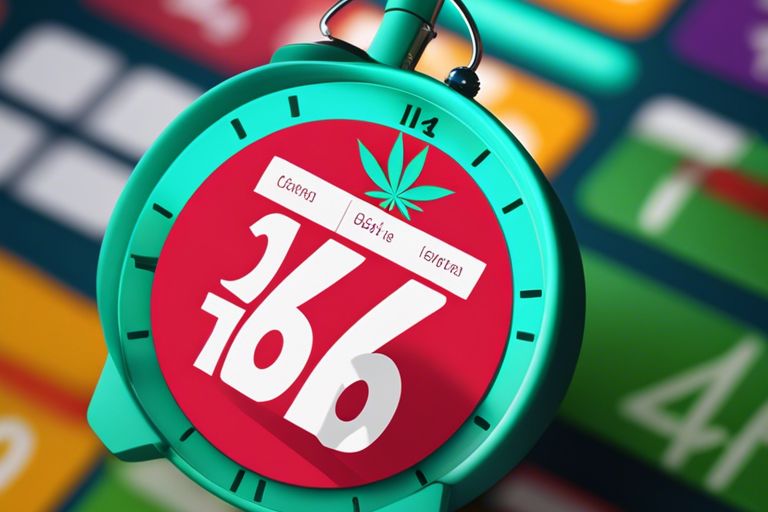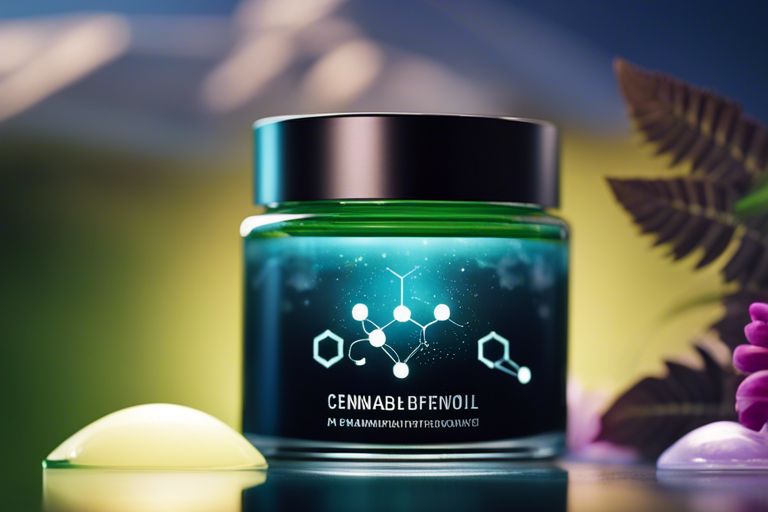Delta 8 – Everything You Need To Know About This Popular Cannabinoid

Delta 8 THC has emerged as a fascinating and controversial cannabinoid that piques your curiosity. If you’ve found yourself wondering about its effects, legal status, and potential benefits, you’re not alone. This blog post will unravel the mysteries surrounding Delta 8, providing you with a comprehensive understanding of why it’s capturing the attention of many, both for its uplifting qualities and the risks it may pose. Get ready to dive deep into the world of Delta 8!
Key Takeaways:
- What is Delta 8 THC? – Delta 8 THC is a cannabinoid derived from hemp that is known for its psychoactive effects, which are milder compared to Delta 9 THC, the primary psychoactive component in cannabis.
- Legal Status – Delta 8 is federally legal under the 2018 Farm Bill, as it is derived from hemp, but its legality varies by state, leading to confusion and a patchwork of regulations.
- Consumer Effects – Users report various effects including relaxation, euphoria, and pain relief, but experiences can differ significantly from person to person, making it important to approach usage with caution.
1. Delta 8 THC is a cannabinoid derived from hemp.
2. It offers psychoactive effects, but milder than Delta 9.
3. Legality varies by state; check local regulations.
4. Users report anxiety reduction and relaxation benefits.
5. Available in various products: gummies, vapes, and tinctures.
6. Quality and purity may differ; choose reputable brands.
What is Delta 8?
To grasp the intriguing world of cannabinoids, you need to start with understanding what Delta 8 is. Delta 8 THC, or Delta-8-tetrahydrocannabinol, is a naturally occurring compound found in cannabis plants, albeit in much smaller quantities than its more famous counterpart, Delta 9 THC. This cannabinoid is a close relative of Delta 9, sharing a similar chemical structure but differing in atomic arrangement, which leads to distinct psychoactive effects. If you’re curious about the nuances between Delta 10 and Delta 8, you can find out more by checking out How is Delta-10 THC different from Delta-8 THC?.
Definition and Chemical Structure
Delta 8 is classified as a cannabinoid and interacts with the endocannabinoid system in your body, which is responsible for regulating various physiological processes such as mood, memory, and pain perception. Chemically, Delta 8 has a similar formula to Delta 9 THC but with a slight alteration in the placement of a double bond in its molecular structure. This seemingly insignificant difference may explain why users report varying experiences between the two, making Delta 8 a unique entity in the landscape of cannabinoids.
Moreover, the synthesis of Delta 8 can happen naturally in the cannabis plant or can be derived from CBD, which is often extracted from hemp. As the demand for Delta 8 increases, its availability in different forms—such as tinctures, edibles, and vape products—has expanded, making it accessible for consumers curious about its effects.
How it Differs from Delta 9 THC
Chemical distinctions are the cornerstone of understanding why Delta 8’s effects feel different from Delta 9 THC’s. While both variants can induce psychoactive effects, Delta 8 is reported to have a milder and more clear-headed experience. It seems to allow users to enjoy therapeutic benefits without the intense euphoria or anxiety that some might feel with Delta 9. This quality makes it an appealing option for those apprehensive about the potential side effects associated with traditional THC.
It’s also crucial to note the legal landscape surrounding Delta 8. While Delta 9 is federally illegal in many places, Delta 8 exists in a gray area of legality, often derived from legal hemp sources. However, be cautious—while it may offer a more relaxed experience for most, there are still potential risks. Some products may contain impurities or lack regulatory oversight, which can lead to unexpected consequences. Therefore, ensuring you purchase Delta 8 products from reputable sources is vital to your safety and satisfaction.
Effects of Delta 8
It’s important to understand the effects of Delta 8 THC, particularly as its popularity continues to rise. This cannabinoid presents a unique profile that might appeal to both seasoned consumers and those new to the world of cannabinoids. While it shares some similarities with its more infamous cousin, Delta 9 THC, the distinctions in psychoactivity and therapeutic potential are noteworthy and worth exploring.
Psychoactive Properties
One of the primary attributes distinguishing Delta 8 THC is its psychoactive effects. Users typically report a milder, more clear-headed high compared to the often overwhelming sensation associated with Delta 9 THC. This can be particularly appealing if you’re looking for relaxation without the intense anxiety or paranoia that can accompany traditional cannabis. Many find that Delta 8 helps enhance their mood and decrease stress while still allowing them to maintain focus and clarity.
This gentler psychoactive experience makes Delta 8 an intriguing option for those who may have had negative reactions to other forms of THC. If you’ve previously hesitated to explore cannabis due to those experiences, Delta 8 could offer a more inviting entry point into the world of cannabinoids.
Therapeutic Benefits
Therapeutic benefits associated with Delta 8 are one of the factors contributing to its growing popularity. This cannabinoid showcases potential anti-inflammatory, anti-nausea, and appetite-stimulating properties, making it an attractive choice for various health concerns. It’s important to note that while these benefits are supported by anecdotal evidence and preliminary research, more extensive studies are necessary to fully understand the implications of Delta 8 for therapeutic use.
A growing number of users have reported finding relief from chronic pain, anxiety, and even sleep disturbances through the use of Delta 8 THC. For individuals seeking a natural alternative to traditional medications, the potential advantages offer a pathway that could enhance your overall well-being without some of the more severe side effects often associated with pharmaceuticals.
Potential Risks and Side Effects
The importance of being informed about potential risks and side effects when considering Delta 8 THC cannot be overstated. While many report positive experiences, some individuals do experience side effects such as drowsiness, dry mouth, and changes to appetite. It’s crucial to approach Delta 8 with caution, as your body may react differently than others, particularly if you’re new to cannabinoids.
Understanding the landscape of Delta 8 also includes being aware that the market is often unregulated. This can result in products that vary widely in quality, purity, and potency. If you choose to try Delta 8 THC, seeking reputable brands that provide third-party lab testing is vital to ensure safety and effectiveness. Your health and well-being are paramount, and staying informed allows you to navigate this exciting new cannabinoid landscape with confidence.
Legal Status of Delta 8
Your understanding of Delta 8 is incomplete without a solid grasp of its legal status. This is crucial because laws surrounding cannabinoids can significantly impact your ability to purchase, consume, or even be charged with an offense. In the U.S., the legal framework has become a mix of federal laws, state-specific regulations, and international implications, making this whole scenario a bit of a legal puzzle.
Federal Laws and Regulations
Legal factors are at play here, primarily revolving around the 2018 Farm Bill, which legalized hemp-derived cannabinoids. As Delta 8 THC is derived from hemp, it falls under this legislation as long as it contains no more than 0.3% Delta 9 THC. However, the Drug Enforcement Administration (DEA) has expressed concerns regarding Delta 8 and its psychoactive properties, leading to a murky interpretation of its legality. Consequently, while you may find Delta 8 products readily available online, the federal government hasn’t issued a clear stance, creating uncertainty.
Moreover, the Food and Drug Administration (FDA) has yet to approve Delta 8 for medical use or as a regulated product, adding another layer of complexity. If you’re contemplating using Delta 8, be aware that legal ambiguities can lead to potential risks, especially if you’re aiming for compliance with federal law.
State-by-State Legality
An necessary factor to consider is that legality doesn’t stop at the federal level—you will need to assess individual state laws as well. Each state can adopt its own regulations governing the sale and use of Delta 8. As of now, some states have embraced it, others have imposed restrictions, and a few outright ban it. For example, states like Texas and Florida may allow Delta 8 products, while places like New York and Michigan have opted for stricter regulations.
With such a complex patchwork of laws, it’s advisable to do thorough research or consult legal experts if you’re navigating the Delta 8 landscape. States are prone to changes in their regulations, especially given the cannabinoid’s rising popularity, so keeping up-to-date is necessary.
International Laws and Restrictions
Legality does not stop at national borders; international law complicates the ownership and distribution of Delta 8 even further. Each country has its own approach to cannabis, including hemp-derived products like Delta 8. In some nations, it may be completely legal, while in others it could be strictly prohibited. This means you must be mindful of where you are if you’re considering traveling with Delta 8 or purchasing it abroad.
Plus, it’s worth considering that some countries are currently redefining their stance on cannabis and cannabinoids. As a result, legality can shift dramatically, making it critical for you to stay informed about current regulations wherever your travels take you. Understanding the legal status of Delta 8 not only enhances your knowledge but also keeps you on the right side of the law, safeguarding you from potential legal pitfalls.
How to Consume Delta 8
Many consumers are discovering the myriad ways to consume Delta 8, each offering unique effects and experiences. Whether you’re a seasoned cannabinoid enthusiast or a newcomer to the world of Delta 8, understanding your options greatly enhances your journey. The consumption methods vary from traditional edibles to modern vape products, each catering to different preferences and lifestyles.
Edibles and Beverages
Any time you choose to enjoy Delta 8 through edibles and beverages, you open the door to a delightful and flavorful experience. These products come in various forms, such as gummies, chocolates, or even infused drinks, making them a popular choice for those looking to enjoy Delta 8 discreetly. One of the biggest advantages of edibles is that they are often easy to dose and don’t require additional equipment.
Moreover, the effects of edibles are typically more long-lasting compared to other methods, creating a prolonged sense of relaxation and euphoria. However, it’s crucial to remember that edibles can take longer to kick in, often up to two hours, so patience is key when consuming them. Understanding the difference can ensure you maintain a pleasant and controlled experience.
Vapes and Cartridges
Vapes are becoming an increasingly popular choice for Delta 8 consumption, as they provide a quick and efficient method for inhaling cannabinoids. With a simple inhale, you can feel the effects almost immediately, allowing for a more customizable experience. Plus, there’s a wide range of flavors and formulations, making your vaping experience as enjoyable as it is effective.
For instance, many brands offer pre-filled cartridges that you can easily attach to a vape pen, providing convenience and portability. This method also allows for greater control over your dosage and consumption frequency. Just be aware of the potential risks associated with vaping, such as lung health concerns and the quality of the product, which can vary widely from brand to brand.
Tinctures and Topicals
To further diversify your Delta 8 use, tinctures and topicals present interesting alternatives. Tinctures are typically taken sublingually, allowing for quick absorption into your bloodstream, while topicals can be applied directly to your skin for localized effects. This makes them perfect for those seeking relief from specific conditions or simply wishing to enhance their overall wellness.
Edibles can offer a unique experience, but tinctures and topicals allow for more targeted effects. Whether it’s a tincture for anxiety relief or a topical for muscle soreness, this method can provide you with a versatile tool in your wellness arsenal. As always, be sure to choose high-quality products to maximize the benefits.
Dosage and Administration
With any method of Delta 8 consumption, understanding dosage and administration is vital to ensure a safe and enjoyable experience. Start with a lower dose, especially if you’re new to Delta 8, and gradually increase it as needed. Monitoring your body’s response helps you determine what works best for you, allowing you to tailor your experience over time.
Consume responsibly, and remember that individual tolerance levels can vary significantly. Finding the right dosage is key to achieving the desired effects without overwhelming yourself. Mistakes in dosing can lead to uncomfortable experiences, so take your time to familiarize yourself with how Delta 8 interacts with your body.
Benefits of Delta 8 Over Other Cannabinoids
Despite the growing interest in cannabinoids, you might find yourself wondering how Delta 8 stacks up against its better-known counterparts, particularly Delta 9 THC and CBD. By understanding the distinct advantages of Delta 8, you can make more informed decisions about your cannabis experience and wellness journey.
Comparison to CBD
Comparison
| Delta 8 | CBD |
|---|---|
| Produces a mild psychoactive effect, which can enhance relaxation and creativity. | Non-psychoactive, providing relaxation without a high. |
| May offer a balance of benefits like pain relief and appetite stimulation without overwhelming effects. | Primarily focused on anxiety reduction and anti-inflammatory properties. |
While CBD is often celebrated for its medicinal qualities, such as anxiety relief and anti-inflammatory properties, Delta 8 brings its own unique psychoactive benefits into the fold. It’s worth noting that if you seek pain relief with a touch of euphoria—a kind of therapeutic buzz—Delta 8 has the edge. This cannabinoid offers a more balanced high that many people find appealing, particularly those who might be sensitive to the intensity of Delta 9 THC.
Advantages Over Delta 9 THC
Advantages
When considering Delta 8’s advantages over Delta 9 THC, one notable feature is its reduced anxiety levels. Users frequently report that Delta 8 provides a smoother, less anxious experience than traditional THC, allowing for relaxation without the overwhelming paranoia that can sometimes follow a dose of Delta 9. This quality can be particularly beneficial if you’re new to cannabis or looking for something that won’t disrupt your day.
Furthermore, Delta 8 is believed to produce a clearer-headed high, which can enhance your focus and motivation. For those who want to experience the uplifting aspects of cannabis without compromising their productivity, Delta 8 is a wonderful option. With its relatively mild psychoactive effects, you’re likely to find that Delta 8 is a more approachable choice, especially if you’re navigating the cannabis landscape.
Delta 8 is rapidly becoming a favored option for those seeking the benefits of cannabis without the fear of overwhelming effects that can accompany Delta 9 THC. Many people find that they can enjoy social activities while maintaining a sense of clarity, which positions Delta 8 as a versatile choice.
Unique Properties and Uses
Over the years, researchers have begun to uncover distinct properties associated with Delta 8 THC. This cannabinoid not only affects the endocannabinoid system in ways that can promote relaxation and reduce nausea, but it also exhibits potential as an appetite stimulant, much like its Delta 9 counterpart. Yet, users often report that the experience is much less intense and more controllable.
Plus, real-world anecdotes suggest that Delta 8 can help to mitigate the typical side effects of other THC variants, such as anxiety and paranoia, making it a favorable option for those looking to explore the world of cannabinoids. If you’re curious about experimenting with cannabis for wellness or recreational purposes, Delta 8 offers a unique blend of positives that make it worth considering. Whether relaxing at home or seeking social engagement, there’s a good chance you’ll enjoy everything this remarkable cannabinoid has to offer.

Research and Studies on Delta 8
Now, as you dive deeper into the world of Delta 8 THC, it’s vital to consider the scientific landscape surrounding this intriguing cannabinoid. It may not have garnered the same level of attention as its counterpart, Delta 9 THC, but the research community is beginning to take notice. For instance, several studies have highlighted how Delta 8 exhibits similar therapeutic properties to Delta 9 but potentially with fewer psychoactive effects. Early findings indicate that it could aid in areas such as appetite stimulation and anxiety relief, making it a compelling topic for further exploration. These scientific breakthroughs pave the way for an enriched understanding of Delta 8 as a potentially safer alternative for users seeking the benefits of THC without the overwhelming high.
Scientific Findings and Breakthroughs
Scientific evidence thus far suggests that Delta 8 THC could possess notable properties suitable for medicinal applications. Studies have reported that Delta 8 has shown effectiveness in reducing nausea and vomiting in children undergoing treatments like chemotherapy, drawing attention to its potential as a natural remedy. You might be surprised to learn that some animal studies also reveal that Delta 8 could help modulate cognitive function, suggesting it may play a role in enhancing focus or clarity. These findings signify a beacon of hope for advocates pushing for the legitimacy of this cannabinoid in both therapeutic and recreational contexts.
Ongoing Research and Future Directions
Ongoing research into Delta 8 THC is still in its infancy, but the momentum is building. As regulators and scientists continue to investigate the properties and potential benefits of this cannabinoid, you can expect a wealth of new information to surface in the coming years. Researchers are exploring Delta 8’s interactions with the endocannabinoid system, seeking to understand how it might support not only symptom relief but also how it compares to other cannabinoids on a molecular level.
With the increasing popularity of Delta 8 in the marketplace, it’s likely that academic institutions, independent laboratories, and organizations will ramp up their investigations. You may find yourself in a fascinating space of discovery as experts seek to evaluate its long-term effects, safety profile, and any therapeutic benefits. If you’re eager for solid data to support your use of Delta 8, the next few years promise to deliver crucial findings that will shape the conversation around this cannabinoid.
Limitations and Controversies
Controversies surrounding Delta 8 THC primarily stem from its legal status and the lack of regulation. Many of the Delta 8 products available today fall into a legal gray area, often marketed as a loophole created by the 2018 Farm Bill, which legalized hemp-derived cannabinoids. This can lead to significant variability in quality and purity, which poses risks to consumers. For you, venturing into this space means being aware and vigilant, as not all products are created equal, and some may contain harmful contaminants or inaccurate concentrations.
It’s important to note that while preliminary studies are promising, they often involve small sample sizes or animal models rather than comprehensive human trials. This raises questions about the generalizability of the findings and whether the same effects are observed in larger populations. You might find reassurance in knowing that as more extensive studies are conducted, there will likely be clearer guidance on Delta 8’s efficacy and safety. Until then, exercising caution and prioritizing reputable sources is wise.
Conclusion
Conclusively, understanding Delta 8 and its nuances can empower you in your cannabinoid journey, providing a balanced perspective on this rising star of the cannabis family. With its unique properties, Delta 8 offers a distinct experience that differs from its more famous counterpart, Delta 9. You may find that it provides a milder effect, making it an appealing choice for those seeking relief without an overwhelming high. Whether you are a seasoned cannabis user or a newcomer, knowing the ins and outs of Delta 8 can enhance your overall experience and inform your choices.
As you move forward, keep in mind that the world of cannabinoids is vast and continually evolving. Your exploration of Delta 8 could lead you to exciting new avenues of relaxation, creativity, or even wellness. By approaching this cannabinoid with a curious mind and an open heart, you can uncover the potential benefits it holds. So, as you navigate this fascinating landscape, remember to prioritize safety, seek quality products, and enjoy the journey of discovery that Delta 8 and the cannabis world have to offer.
FAQ
Q: What is Delta 8 THC and how does it differ from Delta 9 THC?
A: Delta 8 THC is a cannabinoid derived from cannabis, specifically from the hemp plant. It is chemically similar to Delta 9 THC, which is the more notorious psychoactive compound found in marijuana. The primary difference between Delta 8 and Delta 9 lies in their chemical structure; Delta 8 has a double bond on the eighth carbon atom, whereas Delta 9 has it on the ninth. This slight difference gives Delta 8 a milder psychoactive effect compared to Delta 9, making it appealing to those seeking the therapeutic benefits of THC without the intensity of a high.
Q: What are the potential therapeutic benefits of Delta 8 THC?
A: Users of Delta 8 THC have reported several potential therapeutic benefits, including reduced anxiety, improved appetite, pain relief, and nausea alleviation. Some studies suggest that Delta 8 may also have neuroprotective properties, making it potentially useful for conditions such as neurodegenerative diseases. However, it is necessary to note that research on Delta 8 is still in its early stages, and more comprehensive studies are needed to fully understand its effects and benefits.
Q: Is Delta 8 THC legal, and what regulations should consumers be aware of?
A: The legality of Delta 8 THC varies by location. Under the 2018 Farm Bill in the United States, hemp-derived cannabinoids, including Delta 8 THC, are federally legal as long as they contain less than 0.3% Delta 9 THC by dry weight. However, some states have enacted their laws specifically addressing Delta 8, and it is necessary for consumers to research local regulations before purchasing or using Delta 8 products. Additionally, due to the relative novelty of Delta 8 in the market, product quality can vary significantly, so it’s advisable to buy from reputable sources that conduct third-party lab testing.









